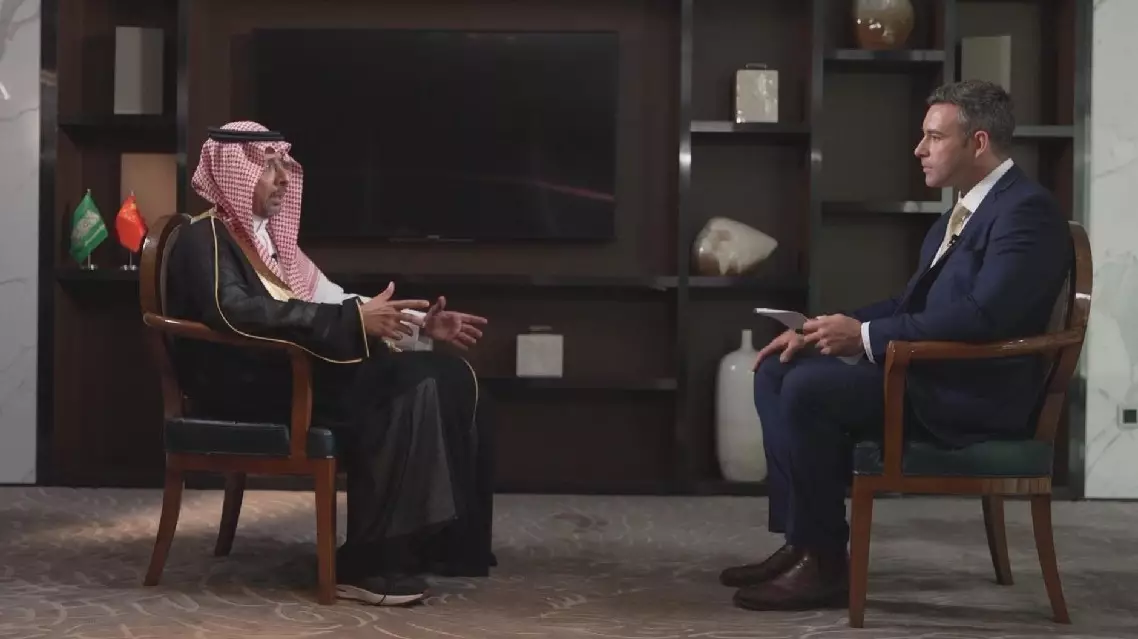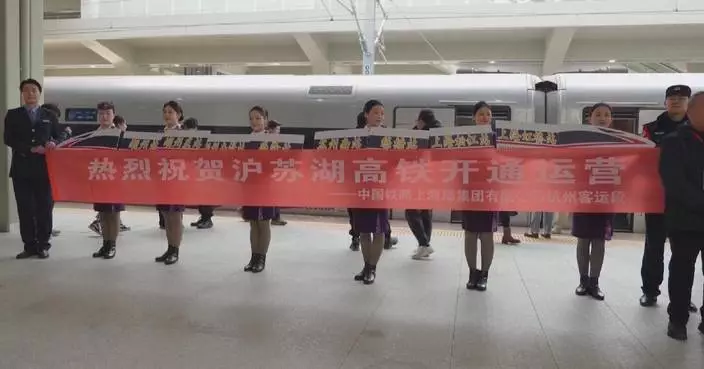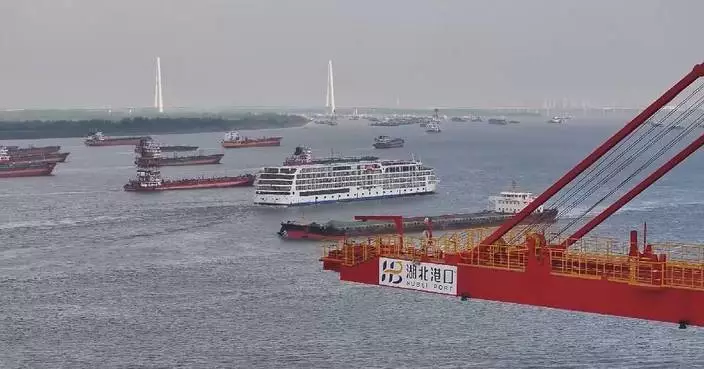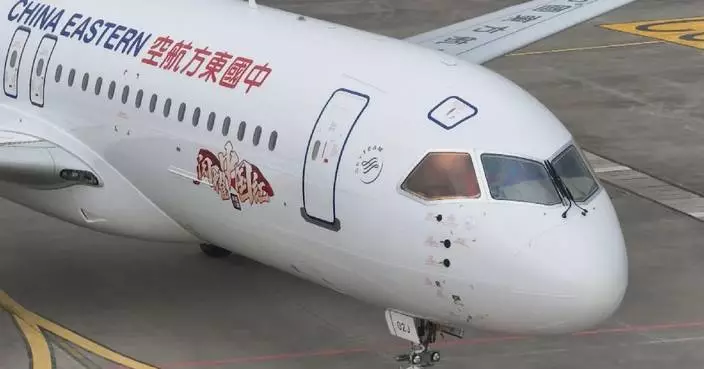Saudi Arabia's burgeoning vehicle production sector and the long-standing stability of its business environment form the foundation for expanding partnerships with Chinese companies, said Saudi Minister of Industry and Mineral Resources Bandar Alkhorayef.
Alkhorayef had earlier wrapped up what he called an "overwhelming" visit to the Guangdong-Hong Kong-Macao Greater Bay Area after a week-long tour of Asia, including Singapore, where he said the aim was to help key businesses look to Saudi Arabia as their next production base.
In an interview with China Global Television Network (CGTN) in Guangzhou, Alkhorayef said he believes there are significant opportunities in Saudi Arabia for collaboration with China, particularly in the areas of electric vehicles and intelligent and connected vehicles.
"Saudi Arabia is the largest importer of cars who doesn't have local production, so we are changing. Today, we have three OEMs (original equipment manufacturer) starting their plants. Most are EVs. And definitely, the supply chain will be built to support this automotive growth in Saudi. We'll definitely attract a lot of Chinese companies, especially in automation and automated production lines that make much faster production and with much less cost, and rely less on labor," he said.
During his latest tour of the Chinese mainland, Alkhorayef invited companies there to invest in Saudi Arabia, as highlighted in its National Industrial Strategy.
In order to attract more foreign investment from China and other countries, Saudi Arabia has created a very stable business environment for the investors, according to the minister.
"Saudi Arabia has great fundamentals to start with. I used to be a businessman, and I think some of the things we have in Saudi are very hard to find elsewhere, especially when you are talking about the currency stability and the foreign exchange risk. These are key issues that Saudi Arabia is blessed with the stability. We also have a stable political system, a stable regulation and policy framework that respects investors for the long term," Alkhorayef said.
"Industry and mining both are long-term investment. They are capital-intensive and they are very long term. So unless there is that kind of stability, it will be very hard to attract [investment]. But I think what is also more interesting to see now is how we were able to figure out how to create the right enablers inside the economy, so things like supporting local content," he added.
For technological innovation and digital transformation, Alkhorayef highlighted that the Saudi government is providing various forms of financial support for domestic and foreign businesses.
"I think one of the most important sectors we invested in since the launch of our vision 2030 is digitalization and connectivity. So Saudi Arabia is very well advanced, and I think COVID showed a true test of this connectivity and this digitalization. We've created a platform in the ministry that offers different suppliers the ability to offer these solutions. Their solutions will be offered to the private sector, and we will support them through different loans, we'll support them in training and in some applications where there is critical, unique technologies, we will even offer grants for specific use," he said.
Saudi Arabia's economic diversification plan Vision 2030 was unveiled by Saudi Crown Prince Mohammed bin Salman Al Saud in 2016.
China is Saudi Arabia's largest trading partner. The Saudi Ministry of Finance said the volume of trade between the two countries exceeded 100 billion U.S. dollars last year.
According to data released by Saudi Arabia's General Authority for Statistics in February this year, China is the main destination for Saudi exports, accounting for 13.2 percent of exports. China also ranks first in terms of the kingdom's imports, taking up 19.9 percent of total imports.

Saudi Arabia's stable environment, EV supply chain to draw Chinese investment: minister









